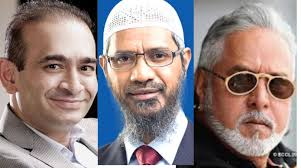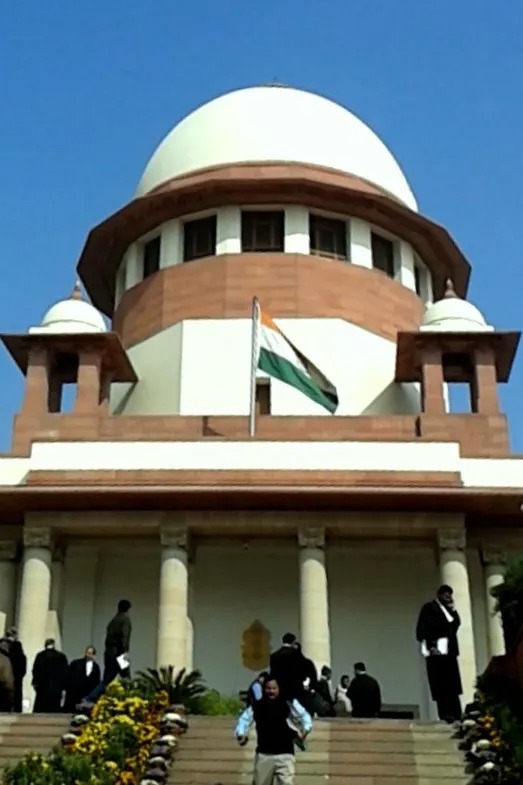@JUDGMENTTAG-ORDER
P. Jyothimani, J.@mdashThis writ petition is directed against the award passed by the Labour Court in I.D. No. 34 of 1998 dated 17.4.2002 on an industrial dispute raised by the second Respondent against the order of termination passed by the writ Petitioner, management wherein the Labour Court has ultimately modified the order of termination into one of postponement of increment for two years with cumulative effect from 22.7.1995. In respect of salary from 22.7.1995 till the date of award, the Labour Court directed for payment of 50% of backwages and continuity of service to the Petitioner. However, in respect of other service benefits, the same are denied for the period from 22.7.1995 till the date of award with direction to pay the said benefits after the date of award.
2. Against the second Respondent who was working as a Conductor, the Petitioner management framed three charges to the effect that the second Respondent reissued the ticket already issued to the passengers, that there was an extra amount kept in cash bag and that the said amount was received in an illegal manner. After explanation was submitted by the second Respondent, the Petitioner management having not satisfied with the same, conducted an enquiry. The Enquiry Officer submitted his report stating that all the charges stood proved and a second show-cause notice was issued to the second Respondent.
a) The Petitioner management having found that in 20 years of service, the second Respondent was imposed with punishment on various occasions for 11 times, which was disputed by the second Respondent stating that only orders of censure were passed in respect of 8 instances, passed the order of termination. As against the order of termination, the appeal filed by the second Respondent came to be dismissed and in those circumstances, the second Respondent raised a dispute u/s 2A of the Industrial Disputes Act.
b) It was the case of the Petitioner management before the Labour Court that when the Checking Inspector inspected the bus in which the second Respondent was working as Conductor, he found that four tickets having folio Nos. 72347, 72348, 72349 and 72350 were previously issued by him and the same were issued once again to the passengers. It was stated that the Checking Inspector seized the four tickets from 72347 to 72350 and on checking the cash bag of the second Respondent, Conductor, it was found that there was extra cash of Rs. 164.35 and that was noted down in one of the tickets bearing No. 672503 and therefore, by such conduct, the second Respondent caused loss to the management.
c) It was also the contention of the Petitioner management before the Labour Court that in the domestic enquiry which was conducted in a proper manner, sufficient opportunity was given to the second Respondent. Even though it was the case of the second Respondent that the excess amount was obtained by way of loan from outsiders, that was not stated in the invoice.
3. Before the Labour Court, on the side of second Respondent Conductor, 11 documents were marked as Exs.W1 to W11, apart from the evidence of second Respondent, workman and on the side of employer, apart from the evidence given by one of the witnesses, 16 documents were marked as Exs.M1 to M16.
a) The Labour Court, while considering the issue as to whether the removal of the second Respondent from service is proper, found that in the domestic enquiry, the principles of natural justice have been followed and the second Respondent has been given proper opportunity to cross-examine the management witness. The Labour Court also found that the second Respondent admitted the presence of excess amount of Rs. 164.35, but his only defence was that the same was received by him from outsiders.
b) In respect of previous punishments, stated to have been imposed on 11 occasions against the second Respondent, the Labour Court found that there was no records to substantiate the same. After considering the oral evidence as well as documents, the Labour Court found that even in the charge, the Petitioner management had stated that earlier the second Respondent was punished for 11 times and that was not substantiated and therefore, the charge prima facie was found to be contradictory.
c) While considering the question as to whether in respect of each ticket which costs Rs. 11.30, the misconduct on the second Respondent has been proved, the Labour Court found that in respect of the said bus, the particulars relating to the trip sheet dated 21.7.2005 have not been produced. It was also found that the particulars relating to the tickets issued on the trips on 22.7.1995 have also not been produced before this Court. While the management had taken a stand that out of four tickets, one was issued to one Srinivasalu Reddy, two were given to one Venkatesan and the last one was given to one Baskaran, the Labour Court found that the management did not examine on its side either Baskaran, Venkatesan or Srinivasalu Reddy in the domestic enquiry. The Labour Court also found that the particulars about one other passenger who travelled with the said Venkatesan to whom the particular ticket was stated to have been given were not also available.
4. Taking note of the fact that the crucial and specific charge framed against the second Respondent was not proved and in the domestic enquiry also, the Checking Inspector was not examined as witness, the Labour Court came to the conclusion that the specific charge framed against the second Respondent has not been proved with material evidence. The Labour Court also found that in respect of other charge, viz., the second Respondent on earlier occasions was involved in such sort of charges, the same has also not been substantiated, apart from the finding that there was no record about the finding against the second Respondent on earlier occasions. The Labour Court held that in the absence of any substantial proof on the charge, the maximum punishment of removal from service is not proportionate to the charges framed, by relying upon the judgment of the Supreme Court in
5. It is as against the said award passed by the Labour Court, the management filed the present writ petition on the ground that it is not as if the service of the second Respondent is unblemished and the very fact that the Labour Court has directed for payment of 50% of backwages shows that the Labour Court has convinced with the proof of charge of delinquency against the second Respondent and in such circumstances, there is no reason for reducing the punishment from termination into one of stoppage of increment and in respect of misappropriation, it is not the quantum that is material, and it is the conduct of the delinquent that has to be taken into consideration for deciding as to whether the misconduct has been committed or not.
6. Learned Counsel for the Petitioner would also submit that when it is found that excess amount was lying with the second Respondent Conductor, as admitted by himself, he should have explained the reason for the same and in the absence of any such explanation, it should be presumed that the money was obtained by illegal means and therefore, the charge of misconduct should be presumed to have been proved. The learned Counsel assails the award of the Labour Court as there is no situation warranting reduction of punishment.
7. On the other hand, it is the contention of the learned Counsel for the second Respondent Conductor that when the Labour Court has given a finding of fact and when there is no finding by the Labour Court that the domestic enquiry was not conducted in a fair and proper manner, there is no necessity for this Court, while exercising jurisdiction under Article 226 of the Constitution of India, to interfere with the award of the Labour Court.
8. Admittedly, as against the award passed by the Labour Court by which the order of termination passed against the second Respondent by the Petitioner management stood modified with the punishment of postponement of increments for two years with cumulative effect, apart from depriving the second Respondent of the benefit of obtaining 50% of backwages for the period from 22.7.1995 till the date of award. The Labour Court also ordered that the Petitioner should not be given other benefits except continuity of service for the above said period, in respect of which the second Respondent has not challenged the award. Therefore, the award, insofar as it is against the second Respondent, has become final.
9. A reference to the award of the Labour Court shows that the Labour Court on appreciation of evidence, especially various aspects, by exercising its jurisdiction u/s 11A of the Industrial Disputes Act, has found that the specific charge against the second Respondent has not been proved. In the absence of any allegation about the manner in which the domestic enquiry was conducted or in the absence of any complaint about the fairness and correctness of the domestic enquiry, it is not possible for this Court, while exercising jurisdiction under Article 226 of the Constitution of India, to sit in appeal over the decision on merit by the Labour Court. The award of the Labour Court can be assailed only in cases where the decision in the domestic enquiry has been arrived at in a manner which is prejudicial to the interest of the workman or which is opposed to the principles of natural justice and not on the basis of merits of the matter.
10. As it is found by the Labour Court in the award, the specific charge against the second Respondent has not been substantiated. When the specific charge against the second Respondent Conductor has not been substantiated, there is no purpose in relying upon various judgments to hold that it is not the quantum of amount which is relevant for misappropriation. In the hierarchy of judgments it has been held by the Courts in India that in cases where charge of misappropriation is proved, then the quantum of money involved in the misappropriation is immaterial. But, on the other hand, on the facts of the case, when there is a categorical finding by the Labour Court that the main charge against the second Respondent has not been proved, there is no necessity for this Court to go into the quantum of money involved.
11. In the circumstance that the Labour Court has categorically found that the charge against the second Respondent has not been proved, I do not see any reason to interfere with the award of the Labour Court. While reducing the punishment from that of termination to the one of postponement of increments as stated above, it is not as if the Labour Court, by closing its eyes, has given a minimum punishment. The punishment as it is seen modified by the Labour Court is not a minimum one. As it is stated above, the punishment is not only postponement of increments for two years with cumulative effect, but also the deprivation of 50% of backwages for the period from 22.7.1995 till the date of award and also other service benefits for the above said period. The Labour Court has only granted the benefit of continuity of service so as to enable him to get the pensionary benefits.
In such view of the matter, I do not see any reason to interfere with the award of the Labour Court. The writ petition fails and the same is dismissed. No costs.

